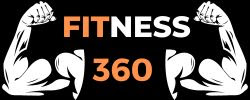Why am I so Hungry on Rest Days?
Rest days are an essential part of any well-rounded fitness routine. They provide an opportunity for our bodies to recover and repair from the physical stress of exercise. However, it's not uncommon to feel exceptionally hungry on these days of rest, which can sometimes be confusing and frustrating. In this article, we'll explore the reasons behind why you might experience increased hunger on rest days and discuss strategies to manage it effectively.
Outline
Introduction
Explanation of rest days
Brief overview of hunger on rest days
Metabolic rate and energy expenditure on rest days
Decreased energy expenditure during rest
Impact on hunger levels
Hormonal changes on rest days
Ghrelin and hunger signals
Leptin and satiety signals
How these hormones affect hunger on rest days
Increased focus on food
Lack of distraction from exercise
Psychological factors leading to increased hunger
Nutrient replenishment and muscle repair
Increased need for nutrients on rest days
Hunger as a signal for nutrient replenishment
Strategies to manage hunger on rest days
Balanced meal planning
Optimal macronutrient distribution
Mindful eating practices
Importance of rest and recovery
Benefits of rest days
Balancing rest and hunger management
Conclusion
FAQ
How long should rest days last ?
Can I still lose weight on rest days?
Should I eat more protein on rest days?
Is it normal to feel guilty about eating more on rest days?
How can I differentiate between true hunger and emotional eating on rest days?
1. Metabolic Rate and Energy Expenditure on Rest Days
During rest days, our overall energy expenditure tends to be lower compared to days when we engage in physical activity. We're not burning as many calories through exercise, which can create a calorie deficit and lead to increased hunger. Our metabolic rate naturally decreases when we're not active, influencing our body's energy needs.
2. Hormonal Changes on Rest Days
Hunger is regulated by a complex interplay of hormones in our bodies. On rest days, two key hormones come into play: ghrelin and leptin. Ghrelin, often referred to as the "hunger hormone," stimulates appetite, while leptin, known as the "satiety hormone," signals fullness.
When we're not exercising, our ghrelin levels may increase, triggering hunger signals and making us more susceptible to overeating. Additionally, research suggests that resting can lead to reduced leptin levels, resulting in a decreased feeling of satiety.
3. Increased Focus on Food
Rest days often mean less time spent exercising and more time available for other activities, including meal planning, cooking, and eating. With exercise temporarily on hold, food might occupy a greater portion of our thoughts. This psychological shift can contribute to a heightened awareness and desire for food, leading to increased hunger.
4. Nutrient Replenishment and Muscle Repair
While exercise places demands on our muscles, rest days play a crucial role in their repair and recovery. During these periods, our bodies work to replenish glycogen stores and repair muscle tissue, which requires additional nutrients. Hunger can serve as a natural signal to ensure we provide our bodies with the necessary nutrients for optimal recovery and muscle growth.
5. Strategies to Manage Hunger on Rest Days
Understanding and managing hunger on rest days can be beneficial for maintaining a healthy relationship with food and ensuring overall well-being. Here are a few strategies to help you navigate increased hunger:
Balanced Meal Planning: Focus on nutrient-dense meals that include a balance of protein, carbohydrates, and healthy fats. This combination can provide sustained energy levels and promote satiety.
Optimal Macronutrient Distribution: Experiment with adjusting the distribution of macronutrients in your meals to find what works best for you. Some individuals may find that slightly increasing protein or fiber intake helps control hunger.
Mindful Eating Practices: Pay attention to hunger and fullness cues, eating slowly and savoring each bite. Engaging in mindful eating can help you better understand your body's needs and prevent overeating.
6. Importance of Rest and Recovery
Rest days are not only an opportunity to manage hunger but also a vital part of any effective fitness routine. They allow our bodies to repair and strengthen, reducing the risk of overuse injuries and improving overall performance. Balancing the need for rest and recovery with hunger management is key to maintaining a healthy and sustainable fitness lifestyle.
7. Conclusion
Feeling hungry on rest days is a common occurrence due to metabolic changes, hormonal fluctuations, and increased focus on food. Understanding the underlying reasons can help us make informed choices to manage hunger effectively. By implementing strategies such as balanced meal planning, optimal macronutrient distribution, and mindful eating practices, we can strike a healthy balance between rest, recovery, and fueling our bodies appropriately.
8. FAQ
Q: How long should rest days last?
A: The duration of rest days can vary depending on individual fitness levels and goals. Generally, one to two rest days per week is recommended.
Q: Can I still lose weight on rest days?
A: Yes, weight loss is achievable on rest days by maintaining a calorie deficit through mindful eating and portion control.
Q: Should I eat more protein on rest days?
A: Adequate protein intake is essential for muscle repair and recovery, so ensuring a sufficient protein intake on rest days can be beneficial.
Q: Is it normal to feel guilty about eating more on rest days?
A: It's common to have feelings of guilt surrounding food, but it's important to remember that rest days are necessary for overall fitness and well-being.
Q: How can I differentiate between true hunger and emotional eating on rest days?
A: Pay attention to physical hunger cues, such as a growling stomach or feeling lightheaded, rather
than eating in response to emotional triggers or boredom.

.jpg)